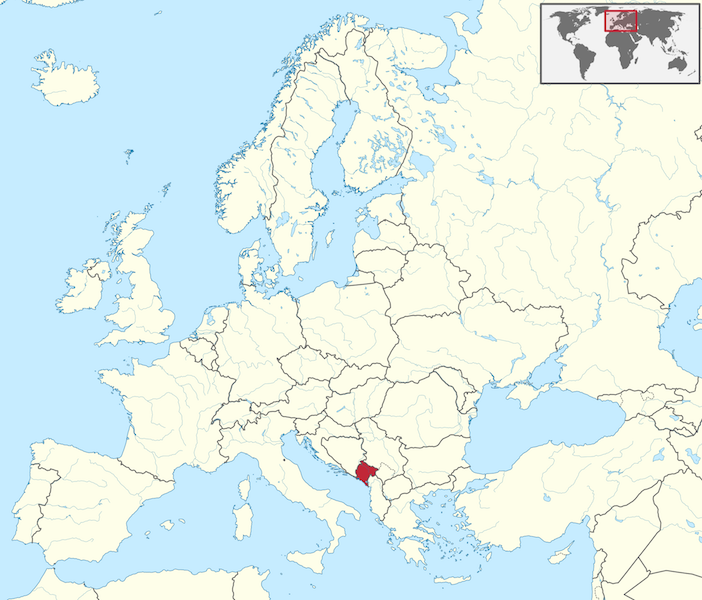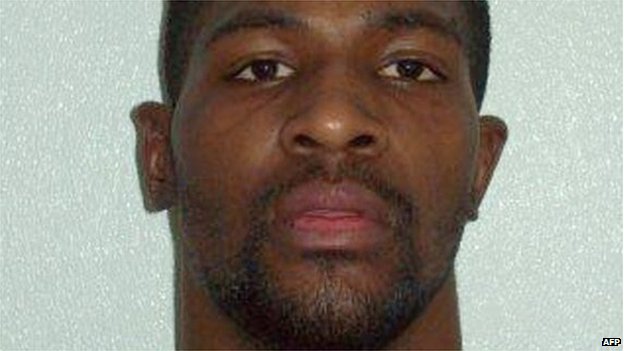By: Roger Hilton
Defence and Security Fellow
As most of Canada fawns over the NHL playoffs and life in much of western Europe and at home returns to the “new” normal, it is necessary for policy planners to maintain their vigilance when it comes to the international security landscape. Thankfully, the arrival of GLOBSEC’s three-day Digital Stage conference was a great defence and security policy refresher that confirmed existing principles while also highlighting gaps that require further attention as the school year begins.
If one truth has rung loud throughout the pandemic, it is that COVID19 does not kill geopolitics. From mask and vaccine wars to military signaling, great powers have used the opportunity to flex their muscle and consolidate positions. Speaking on the introduction session of day one of the conference, The World Post-COVID19, renowned thinker Robert Kaplan was blunt in his assessment that as the pandemic subsides, the international security landscape can expect rising levels of geopolitical activity that could result in riskier policy decisions and even escalation. Against this alarming backdrop, the follow-up session on strengthening transatlantic cooperation in times of upheaval was both sobering and optimistic.
There is no denying that relations between the US and EU have been fraught with tensions on numerous policy divergences that have dislodged longstanding symmetry. While it is uncomfortable to fathom further deterioration, Slovak Foreign Minister Ivan Korčok was more than willing to get relations back on track and even suggested the creation of formalized structure between the U.S Secretary of State and EU Foreign Ministers to meet bi-annually to overcome existing differences. When it comes to NATO, it was also supremely satisfying to see Minister Korčok reject assessments that the state of transatlantic affairs was fatally challenged. That is no doubt a good omen as Canada begins its term conducting enhanced Air Policing in Romania. While acknowledging the tough current economic situation, Minister Korčok was unequivocal in his declaration that NATO members need to spend more in order to rely on collective defence, stating, “It is not a controversial topic anymore.” Finally, with trouble brewing in the eastern Mediterranean between NATO allies Greece and Turkey, the tonic of the day remains diplomatic perseverance and constant dialogue, with Germany playing broker to ease tensions.
While it is known that disinformation is dangerous, it might not be as well-known that disinformation is also big business.The Global Disinformation Index estimates that a quarter of a billion dollars went towards COVID19 conspiracy theories in 2020. According to Rand Waltzman of the RAND Corporation, until governments make it worth the while of social media companies to remove tainted content, there is no motivation to censor material that drives their bottom line. Consequently, until they are forced to behave properly through regulations, they will continue to promote negative externalities to the public space, posing a legislative challenge in the commons.
To round out the first day, the dilemma of how to craft a response to the quagmire in Belarus was heatedly debated. The events engulfing Minsk have taken on a notable significance in Bratislava, given that Belarusian Ambassador to Slovakia, Igor Leshchenya, sided with protesters. There was universal acceptance by Ambassador Michael Siebert, former Swedish Foreign Minister Carl Bildt and Ambassador Daniel Fried that the West must reject the results of the presidential election.They cautioned, however, against the immediate deployment of sanctions, given their disproportionate impact on citizens over regime personnel. As the situation develops, organizing a coordinated response among democratic countries stands out as the number one policy option for Canada to consider.
Day two kicked off with a discussion on one of the most pressing questions impacting the international system: the growing tensions and dangerous rivalry between the United States and China. Former Australian Prime Minister Kevin Rudd was frank in his assessment of how bilateral relations could evolve and presented three pathways,“A hot war, sliding slowly and inexorably into a cold war, and an exit ramp.” The discussion coincided with the European tour of Chinese Foreign Minister Wang Yi who will be visiting Italy, the Netherlands, Norway, France, and Germany, on a platform to jump start the global economy and work on multilateralism. These were all countries that Secretary of State Mike Pompeo didn’t visit on his last European mission. As Ottawa works through its own difficulties with Beijing, notably the CanSino vaccine export fiasco, and gauges the outcome of these European-China meetings, Andrew Small of the German Marshall Fund evaluated Minister Yi’s trip as a damage limitation exercise given China’s litany of miscreant behavior.
Although Canada has very little skin in the game when it comes to European strategic autonomy, it was nonetheless an interesting security policy debate that reinforced the divergence of opinions on how to achieve it. Of the topics discussed, the recognition of the EU’s reluctance to use force in operations,the need to generate sufficient domestic military hardware when it comes to industrial procurement, and the importance of cutting the EU’s reliance on foreign material support were major takeaways. On PESCO (Permanent Structured Cooperation) Natalie Loiseau, Chair of the Subcommittee on Security and Defence in the European Parliament, professed her concern that, like many things in the Brussels bubble, PESCO would be overtaken by bureaucracy and diminish its strategic ambition. Extensive Russian military activity in the Baltic Sea region has alarmed Sweden, a non-NATO member, where the need for further European military credibility remains a work in progress.
Shifting out of Europe to the Middle East, Ayman Mhanna, Executive Director of the Samir Kassir Foundation, gave an emotional address on the situation in Lebanon after the August 4th blast. While Lebanon has become synonymous with government corruption, he remained undeterred that by removing state graft, reinstalling an independent judicial system and recalibrating the process for electing officials credible, reform could take place. With Foreign Affairs Minister Champagne meeting Lebanese President Aoun, it would be advantageous for Canada’s top diplomat to advocate for this reform.
The intensity of conversations on day three were no different and started off with a bang on how to increase resiliency amidst a disruptive landscape. Although resiliency is itself not a strategy, it can be considered the new currency that will determine both how nations and corporations recover or adjust in the face of unpredictably. As planners strive to integrate resiliency across a spectrum of policies and operations, they should ensure to never omit self-criticism and continue renewal throughout the corporate culture according to Joshua Polchar of the OECD Strategic Foresight Unit.
Another issue that should remain on the radar of Canadian foreign policy makers is the growing trend of state capture across Eastern Europe. Distressing examples across the post-Soviet space in Moldova and Georgia continue to stunt their democratic and economic potential. Nowhere does Canada have more of a strategic interest in ridding this systemic corruption than in Ukraine. Earlier in June, the IMF Executive Board approved a $5 billion Stand-by Arrangement where officials should encourage the enforcement of the Toronto Principles. Brian Whitmore of the Center for European Policy Analysis declared, “Corruption is the new communism”, where much work remains to be done to decouple institutions from institutionalized corruption.
With authoritarian tendencies sweeping international governance, cajoling allied support for democracy and human rights has never been more important for Canada. Therefore, the threat of a fragmented EU is unwelcomed news and weakens an important policy instrument at a time when it is sorely needed. While the unpreceded agreement of the collectivization of debt was a major EU accomplishment in the last bailout, a litany of lingering issues related to the abuse of the rule of law and removal of an independent judiciary in some members states are no doubt causing alarm in Brussels. Until the EU gets its house in order, Canada should dampen expectations with the Berlaymont.
To conclude the conference, the Belarusian opposition leader Svetlana Tikhanovskaya spoke from Lithuania. With neither President Lukashenka nor the protesters showing indications of standing down, Ms.Tikhanovskaya acknowledged the impasse and again called for the immediate release of all political prisoners and fresh elections. Although much of Europe is transfixed on the crisis, she reiterated that protests were not a geopolitical revolution and were neither pro-EU nor pro-Russia. Instead, they were about building a better country without repression and she avowed her confidence in this project and belief in her fellow countrymen to see it through.
Although the NHL playoffs provide a much-needed distraction and respite from COVID, maintaining international security and diplomacy is a never-ending season. As was evident from GLOBSEC’s Digital Stage, there is no shortage of issueswhere Canadian officials will have to maintain current defence strengths and improve security weaknesses. No doubt, class is definitely back in session.
Featured Image: Capture of the GLOBESEC 2020 Conference. Licensed under CC by Globesec.
Disclaimer: Any views or opinions expressed in articles are solely those of the authors and do not necessarily represent the views of the NATO Association of Canada.
Author
-
Hilton is a Defence and Security Fellow at GLOBSEC, an international think-tank based in Bratislava, Slovakia. He is a 2016 graduate of the Diplomatic Academy of Vienna and holds a Masters Degree in Advanced International Studies, as well as a 2013 foreign policy certificate from the Moscow State Institute of International Relations (MGIMO). Roger has previous experience as a Strategic Communications Analyst at the NATO Rapid Deployable Corps – Greece (NRDC – GR) and with the delegation of the Kingdom of Belgium at the Organization for Security and Co-operation in Europe (OSCE). In addition, he has worked at the Office of the State Minister of Georgia for European and Euro-Atlantic Integration in Tbilisi, as well as the Estonian Atlantic Treaty Association in Tallinn. Roger is also a member of the security working group within the Younger Generation Leaders Network (YGLN) and a fellow at the Canadian Global Affairs Institute (CGAI). He also co-hosts GLOBSEC’s Instagram Live show “For Chat’s Sake!”. To date he has visited half of the former Soviet Republics including the breakaway region of Transnistria as well the Chernobyl Nuclear Power Plant. Additionally, he has received briefings from Operation UNIFIER in Yavoriv, western Ukraine and at the Black Tiger Military Base in Kurdistan, Iraq.
View all posts




